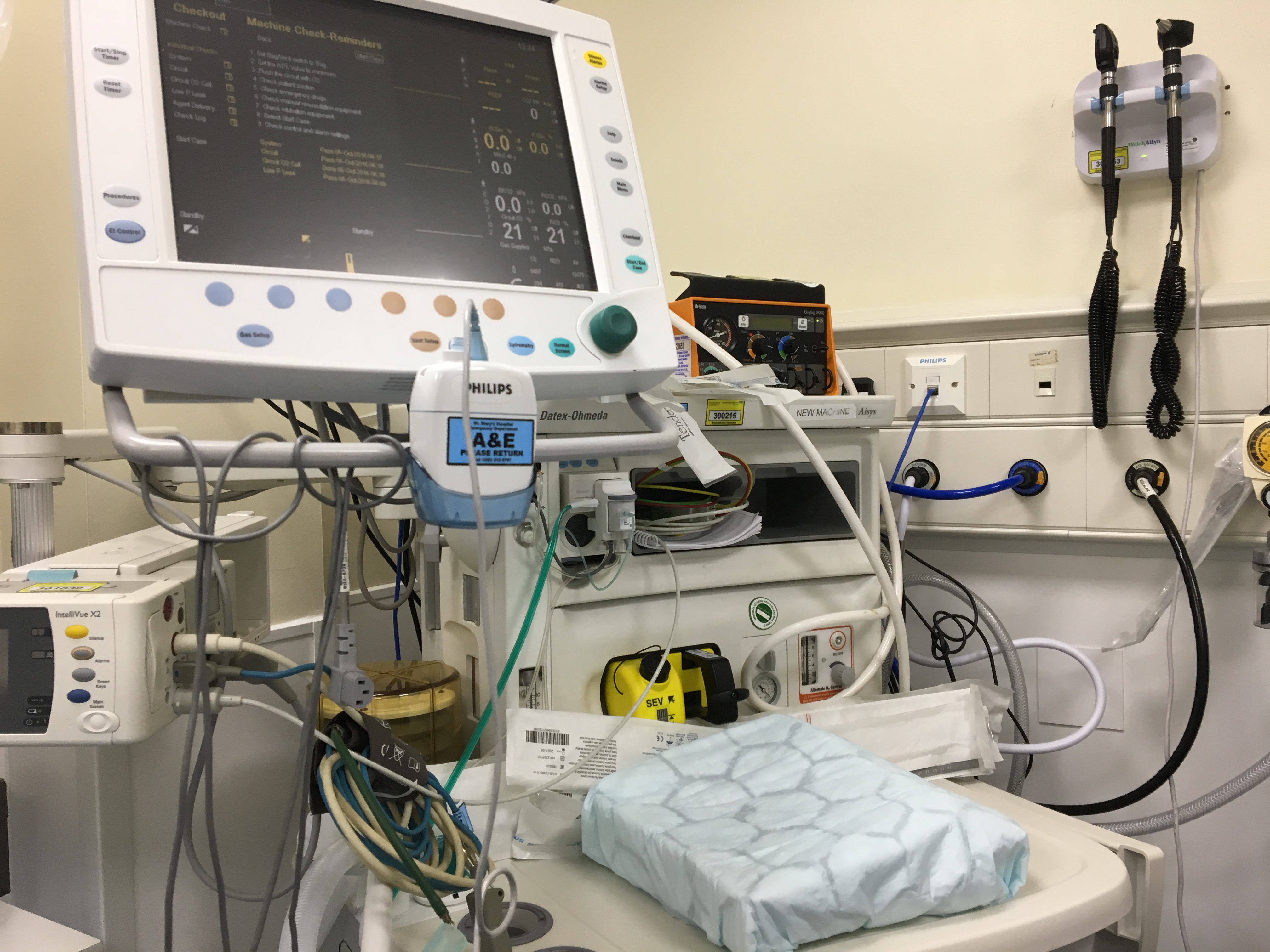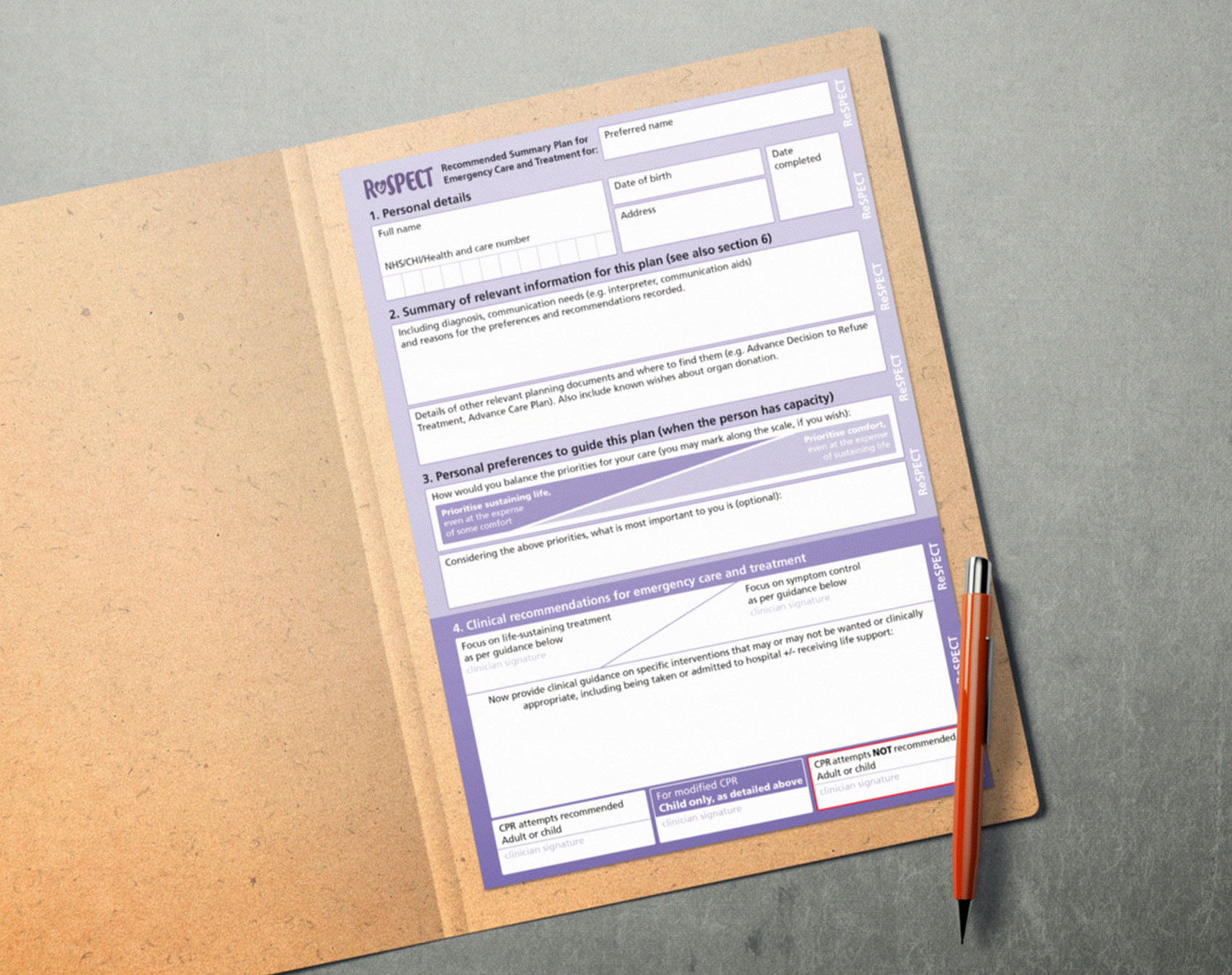ReSPECT
Personalised care, even in an emergency

Background
Nearly half of all UK deaths occur in hospitals, yet few people would prefer to die there. Discussing death in a hospital can be incredibly difficult, especially following an emergency admission: patients and families expect to get better and doctors can find it hard not to try everything to save them. No more is this true when patients face the prospect of failing heart or lungs: medical advances - real or perceived - have created expectations that patients can be reliably saved from death with resuscitation techniques, like cardiopulmonary resuscitation (CPR).
Surviving resuscitation is usually unlikely, and so processes are put in place where clinical decisions are made to not resuscitate someone, as it would likely not help and often cause greater suffering. Health services use such Do Not Attempt CPR (DNACPR) forms to capture these decisions. However, one of the most pressing issues highlighted by Dr Juliet Spiller, Consultant in Palliative Care, is the “unhelpful focus on DNACPR as the only outcome of a planning conversation in healthcare.”
Patients and families can find themselves confronting the likelihood of death during an emergency admission to hospital, and the DNACPR forms have been historically the first time that a conversation is had about it. This presents not only a healthcare challenge, but is a human rights issue.
Our work
We saw an opportunity to use human-centred design to tackle challenges in emergency care planning, which we believed could lead to wider discussions around end-of-life care treatments. In close collaboration with healthcare professionals, our goal was to improve the conversations between clinicians, the patient, and their loved ones, and create a comprehensive document that could capture vital healthcare decisions. We believed that, with the right approach, we could design more than just a form; we could redesign the relationship around it.
This collaboration and approach led to the development of the ReSPECT (Recommended Summary Plan for Emergency Care and Treatment) process, which addresses the challenges of emergency care planning and difficult conversations around end-of-life treatments.

How we did it
During our discovery and design phase, we consulted clinicians, patients, and families, specifically focusing on the issues surrounding DNACPR forms. These forms have led to confusion and distress and are often filled out without the knowledge of the patient or family. In addressing these challenges, ReSPECT incorporates design research and information design to foster more effective, patient-centred conversations. One unique aspect of ReSPECT is its visual scale device, designed to demonstrate the often complex trade-off between sustaining life and providing comfort and dignity, which designs-in the space for dialogue between clinician and patient or people important to them. Dr Spiller adds that “the person-centred context facilitated by a ReSPECT conversation means the patient and family are aware and understanding of the role of positive parallel planning. The visual of the ReSPECT plan is regarded as positive and empowering rather than fear-inducing and misunderstood.”
Impact
Designed in collaboration with over 30 national organisations, since launching in 2017 ReSPECT has been adopted by approximately 54.6% of the health services in the UK, improving patient-centred discussions and care planning for those receiving emergency care.
As for its future, Dr Spiller remarked that “the importance cannot be overstated in terms of the potential to improve patients’ experience during times of health crisis. I would hope that every individual will know that the ReSPECT process is something that will help and support them as illnesses progress and as priorities about what matters most, evolve.”
With the continued rate of adoption and the promising integration into digital health records, ReSPECT shows significant potential in improving emergency and end-of-life discussions and care planning, making it an indispensable tool in healthcare.